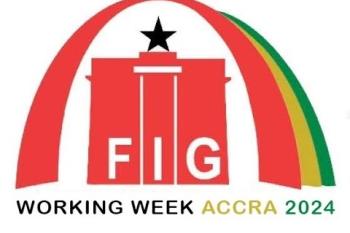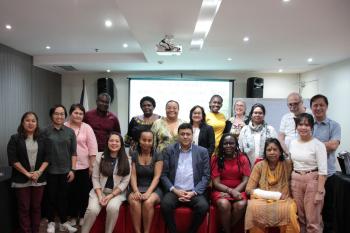Uganda forges partnerships to support implementation of the National Land Policy
The Ministry of Lands Housing and Urban Development (MLHUD) with support from the GLTN/UN-Habitat convened the inaugural National Stakeholders workshop on the implementation of the National Land Policy that was approved by Cabinet and published in February 2013. The two-day forum held at the Imperial Royale Hotel in Kampala, Uganda 22–23 July, 2015 sought to create a basis for developing partnerships and collaborations between the Government of Uganda led by the lands ministry and key stakeholders working in the land sector and also define specific areas and modes of engagement that are essential in ensuring a cost-effective implementation of the National Land Policy.
The workshop brought together over 160 participants from government Ministries Departments and Agencies (MDAs), Members of Parliament (MPs), Development Partners, Civil Society Organizations, professional bodies, the academia as well as the media. In his opening remarks, Uganda’s Minister of Lands Housing and Urban Development, Hon. Daudi Migeroko, thanked the Global Land Tool Network (GLTN) for supporting his country in the implementation of the National Land Policy. The Minister emphasized that land governance challenges are bound to multiply in Uganda if people continue to hold large tracts of unutilized land. This was in response to the occurrence of large pieces of land held by absentee landlords that have attracted many tenants resulting into land conflicts.
Uganda’s Minister of Lands Housing and Urban Development,Hon. Daudi Migeroko
speaks at the meeting
In the keynote address, the UN Resident Coordinator for Uganda Dr. Ahuna Eziakoona pointed out that about 5-11% of Uganda’s agricultural production is lost to land disputes and land dispute resolution institutions are under staffed and not well funded. “There is a rapid urbanization happening particularly in Uganda where the rate is more than 10%, a rate above the average rate of urbanization within Africa, and this is a challenge because we are not ready for it”, said Mr. Danilo Antonio from GLTN/UN-Habitat. Mr. Antonio emphasized the need for adopting pro-poor and gender responsive land management and land tenure tools and approaches to promote tenure security at scale.
As a result of the workshop, the Ministry of Lands Housing and Urban Development will formalize cooperation and coordination with State and Non-State Actors and other stakeholder groups through Memoranda of Understanding (MoUs) defining clear roles and responsibilities with all stakeholders in the implementation of the National Land Policy.


